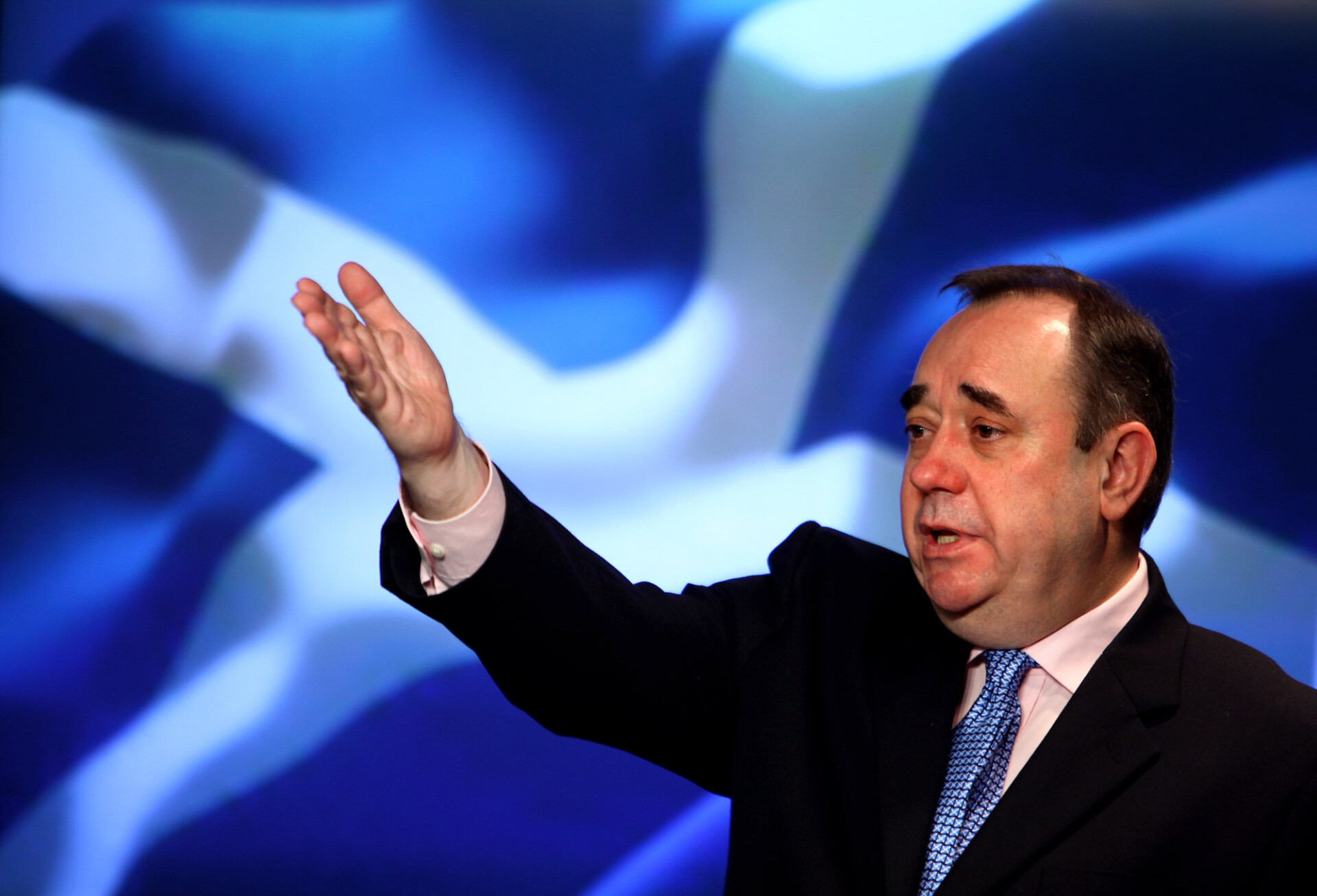Some politicians ride the waves; other politicians make them. Alex Salmond, who died today at the age of 69, unquestionably fell into the latter camp.
Without Salmond, there would have been no SNP government sitting in the Scottish Parliament, no referendum on Scottish independence in 2014, and no continuing debate over the future of the United Kingdom. He took the SNP and the cause of independence from the fringes and brought both into the political mainstream. Everyone had to take a view of Salmond. His legacy is that, today, everyone in Scotland has to take a view about independence too.
In the words of one of his adversaries who, like many, had come away with an encounter counting their bruises, Salmond sucked oxygen from every room he walked into. Combative, charismatic, and controversial, he was impossible to ignore. My own personal memory is on the morning of 4 May 2007, after the SNP had achieved the impossible in beating what up till then was the impregnable Scottish Labour party in that year’s elections. As we journalists dashed to Edinburgh’s Prestonfield Hotel, Salmond arrived by helicopter, skipped past a couple of peacocks, and bounced across to us to declare himself the victor. It was intoxicating. That was the first day of the SNP’s rule which has now lasted fully 17 years.
The former SNP leader was entirely responsible for getting the party to that place. Cannily, he welcomed the drive for Scottish devolution in the Eighties and Nineties — something the fundamentalists in his party opposed. The smarter path, as he saw, would be gradual. Then, as First Minister from 2007 onwards, he and his team understood that by offering and then delivering competent government he could slowly win cautious Scottish voters over to The Cause. Arguably, they were too successful: the party’s dramatic majority victory in the 2011 elections triggered a referendum that few on either side had expected quite so quickly. And confronted by Alastair Darling’s robust practical opposition, Salmond’s chutzpah soon wore thin.
Serious allegations about his personal conduct during his time in office surfaced not long after when he was charged with sexual assault. It brought to the surface Salmond’s darker side: even his own advocate, Gordon Jackson KC, declared his client had behaved poorly in office, calling him “touchy feely”. Yet Salmond was found not guilty and quickly returned to politics, forming his hardline independence Alba party. The fact that Salmond died today while giving a political speech somehow feels entirely appropriate: it is hard to think of any other UK politician of the last 40 years who was so utterly consumed by the drug of politics.
But with Alba flopping in elections, Salmond had become a fringe player. And following the rift that opened up between him and his successor Nicola Sturgeon, the SNP had moved on too, effectively cancelling him from its history. Salmond’s passing is unlikely, therefore, to have a significant impact on where Scotland goes next. The next few days will be uncomfortable for the nationalist movement, as it says farewell to a man who carried it on his back for so many years but towards whom it now feels deeply conflicted.
Salmond will be remembered as many things: a deeply divisive figure, a man of charm and menace; a public figure of intellectual depth; a politician as comfortable at the garden gate as he was in the company boardroom. He didn’t live to see his dream of independence. But that independence for Scotland is even considered as a possibility is entirely down to him.











Join the discussion
Join like minded readers that support our journalism by becoming a paid subscriber
To join the discussion in the comments, become a paid subscriber.
Join like minded readers that support our journalism, read unlimited articles and enjoy other subscriber-only benefits.
Subscribe